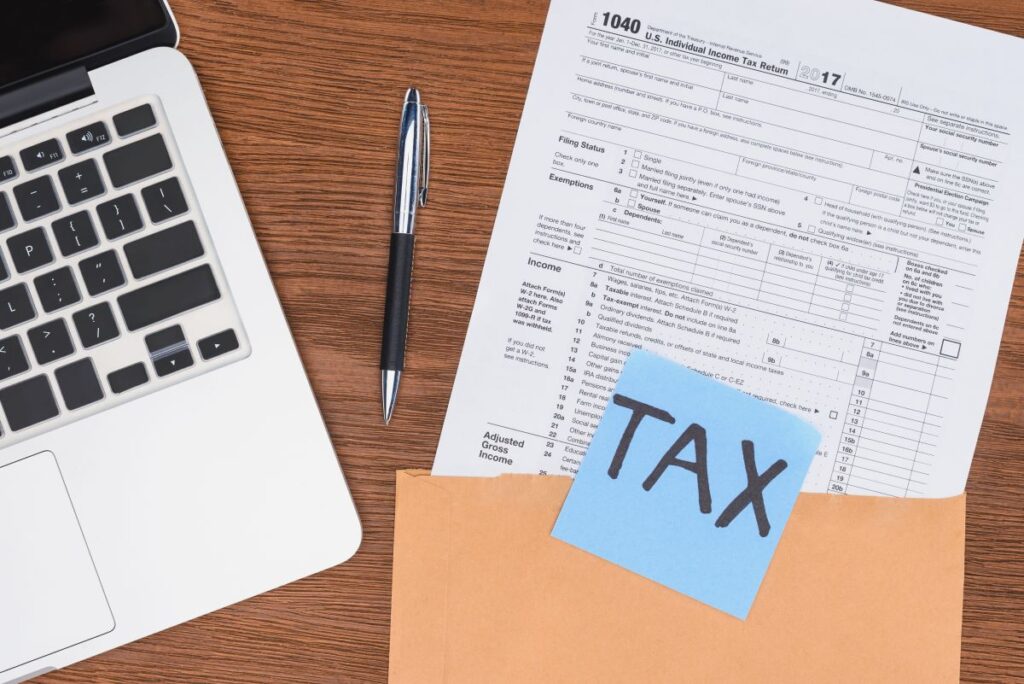What is Escrow? How Does it Work in Real Estate?

If you are buying or selling a home, you’ve likely heard the term “escrow.” But what exactly is it? And how does it work in real estate transactions?
Understandably, it is not uncommon for buyers(or even sellers) to ask questions about escrow, as it is a significant part of the home-buying process.
However, many people are not sure what escrow is and when it can be used. But trust me, understanding escrow and how it works can be beneficial both as a home buyer, seller or home owner. This article will explain the escrow process in detail, what is escrow and how does it work?
What is Escrow?

Escrow is a legal arrangement where a neutral third party holds and regulates payment of funds or asset for the transaction between two parties until certain conditions are met.
In an escrow transaction, there is a third party who ensures that both parties involved in the transaction fulfill their obligation as per the agreed terms and conditions.
In simple terms, escrow is the process which allows the buyer to purchase a property, but release funds to the seller only when certain conditions are met. The money that buyers pay at closing comes from their bank or lender and goes into an account controlled by a neutral third party known as the title company(or another type of settlement agent).
An escrow service can be in various forms like real estate(home buying), business transaction, insurance claim settlement, divorce proceedings etc.
How Does Escrow Work?

Escrow works by having a neutral third party hold funds, assets or documents until a transaction has been completed. Most often, the third party is an attorney or title company.
An escrow usually takes place in three stages:
- Buyer and seller agree to terms of transaction, including purchase price, closing date etc.
- Once these details have been agreed upon by both parties, it’s time for deposit money into an escrow account.
- Once deposit is made, the escrow agent oversees all transfer of funds and documents until closing or settlement date.
Depending on state requirements, funds in escrow may be held anywhere from a few days to a few months.
What is an Escrow Account?
An escrow account is the place where all funds for the escrow transaction are held until they need to be distributed to others. They are often managed by a third-party that is trusted to distribute money according to the terms of the agreement.

Understanding Escrow and Real Estates

In real estates, escrow is typically used for two major reasons:
- Buying and selling a home.
- Paying mortgage taxes and insurance
Furthermore, there are two different escrow account associated with it purpose: One is used during the home buying process, while the other is used throughout the life of your loan.
When Buying a House – How Escrow Works

When purchasing a home, the buyer and seller signs an agreement to transfer ownership of the property. The escrow process is used as a third-party account to hold everything from funds paid for the house, taxes and insurance. The process usually starts at least a month before closing date when all parties and the escrow officer meet to discuss details and fill out paperwork. The buyer pays a down payment, possibly an additional amount for taxes and insurance costs
When Paying Taxes and Insurance – How Escrow Works

Apart from buying of homes, escrow is also used to pay certain fees like taxes and insurance. How does it work? Let me explain:
Every month, your lender collects the money you owe for taxes and insurance into an escrow account. You pay mortgage payments to them every month that include a portion of what you owe for taxes and insurance. This is to ensure that the lender has the money they need on hand to pay your tax and insurance bills when due.
Typically, real estate transactions use escrow services to ensure that funds are protected until a sale is completed.
What Are The Benefits of Using Escrow?
The main purpose of using escrows in real estate transactions is to ensure that there will be no problems when two parties exchange money and property. Escrow also protects both parties by requiring an impartial third party to oversee the transaction.
Here are some benefits of using escrow services:
- Provides protection for all parties involved in a real estate transaction(buyer and seller)
- Ensures that title will be transferred according to agreed upon terms, which protects buyers from sellers who change their minds about the transaction
- Provides a safe and secure way of transferring funds
What Are The Cons or Disadvantages of Escrow?
Though traditional escrow services provide many benefits to both buyers and sellers, they also come with some downsides.
The disadvantages of having a third party to handle all transactions:
Transaction may be delayed :
The process of escrow can take a long time. Buyers and sellers may have to wait for days, weeks or even months before closing on the transaction.
Additional fees involved :
There are also fees associated with every step in the escrowing-process that both parties must pay, like attorney’s fees and taxes/title insurance premiums. (this will depend on the company you are using to handle escrow)
What is an Example of a Real Estate Transaction That Uses Escrow?

Here’s an example: Let’s say John Smith agrees to sell his house for $200,000. He finds a buyer, Jill Doe. In order to ensure that the sale will go through without a problem, both parties agree to use escrow services.
Here’s what happens:
- John Smith puts his house on the market and agrees to sell it for $200,000. He finds a buyer, Jill Doe. Both parties decide they want an escrow officer to handle the transaction.
- Jill Doe pays a deposit of $5000 in an escrow account held by a third party, usually a title company or attorney who will manage the process and ensure that both parties follow all terms outlined in their agreement(such as closing costs, taxes etc.)
- The seller enters into a sales contract with Jill Doe. The contract will include all terms of the sale, including what is to be included in the transaction (fixtures and personal property), who pays for certain costs or fees (such as taxes or commissions) and when they are due
- Both parties then sign an earnest money agreement that holds both Jill’s down payment AND John’s house in escrow until closing date.
- At least 30 days before the closing date, all parties meet with an escrow officer who will verify that funds are held properly and record any changes to the contract(such as repairs or improvements) so they can be paid for by either party when due
- The day of closing comes. Both John and Jill sign the documents that finalize their agreement and escrow officer hands them a check for all money they are due, including the down payment and sale price of John’s house
- Escrow officer also records any changes made to contract (such as repairs) on closing day so both parties can be held accountable for those costs later.
Summary:
Escrow is a process where an independent third-party (in other words, the escrow company) holds your funds or property until all conditions of the contract are met.
The funds or property is held by the escrow company and only released when both parties of a transaction (typically buyers and sellers) have fulfilled their contractual obligations.
Escrow is an important part of the home buying process. It’s a legal contract that provides protection to both buyers and sellers during the transaction process.
Escrow services are usually provided by an attorney, title company or other third-party involved in the real estate process.
The main purpose of escrows is to ensure that both parties will follow all terms outlined in their agreement(such as closing costs, taxes etc.) and make sure property transfers correctly without any problems. Both parties agree to use escrow services because it protects them from each other.
FINAL THOUGHTS
Escrows can be beneficial for both sellers and buyers. It a good way to ensure that your property will be transferred correctly and without problems.
However, it’s important to remember the fees involved with using an escrow service. These might include commissions or closing costs. Some people argue that this can make real estate transactions more expensive for buyers. In addition, if something goes wrong, you may have to pay additional fees for the escrow officer’s services.
Also, It is important that both parties are honest with their transactions and understand what they’re signing. In addition, it might be a good idea to talk to an attorney before getting involved in any transaction involving real estate as this will give him or her time to prepare and understand any legal issues. We want to make sure you are getting the best possible service when it comes to buying or selling a home. That’s why we have an in-house team of experts ready and waiting for your call at anytime. If you need help with any part of the process, give us a call today! Xotic Properties is located in Laguna Niguel, CA but we serve clients throughout the US. Give us a call if this sounds like something that would be helpful for you too!
Would you like to meet our team?
Contact us at info@xoticproperties.com to schedule time.
